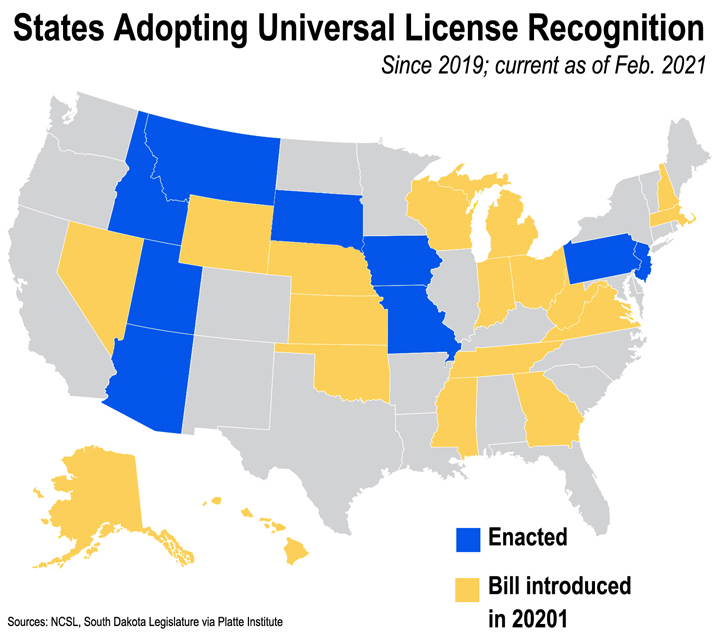My latest research brief notes that, on Feb. 17, South Dakota passed universal license recognition and became the ninth state in the nation to do so since 2019. It’s an idea that the North Carolina General Assembly has entertained but not yet adopted. Why not?
The Locke Foundation has been urging legislators to adopt universal license recognition as part of reforming North Carolina’s occupational licensing laws.

Universal license recognition would be a helpful reform on its own, but it would work better in the context of a package of license reforms. They include a Right to Earn a Living Act, an Occupational License Consumer Choice Act, sunset with periodic review of licenses and licensing boards, and a least-cost-state standard.
With North Carolina having suffered over 222,000 jobs lost after nearly a year of lockdowns, shutdowns, and other business restrictions, the employment situation here is more urgent. Our Carolina Rebound study of critical post-Covid reforms recommended adopting universal license recognition to help “make it easier and faster [for workers] to find a job.” We noted that:
[I]n North Carolina, licensing affects over 181 official job titles and untold numbers of occupational practices. We’re the 17th most restrictive state for jobs held by lower-income workers. That’s untenable given the economic crisis now facing us. Simply put, policymakers can’t let North Carolina’s economic recovery be stymied by unnecessary occupational licensing.


